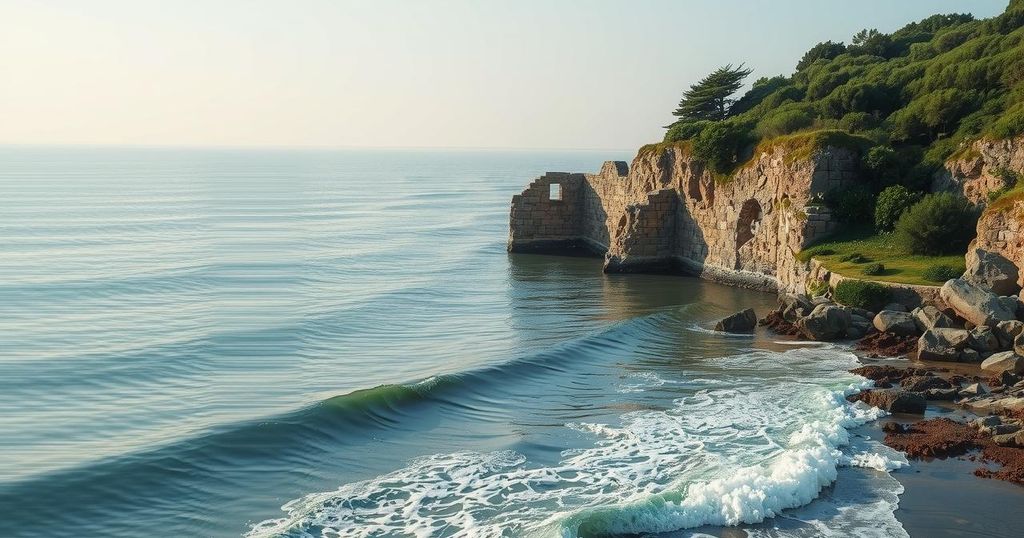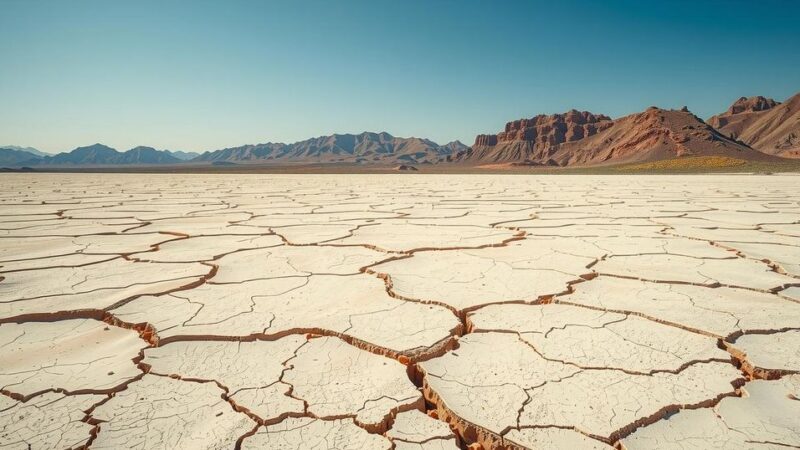A new study indicates that Alexandria, Egypt, is experiencing a dramatic increase in building collapses due to coastal erosion and rising sea levels, escalating from one per year to 40 over the last decade. Researchers found that about 7,000 old buildings are at risk, with solutions proposed to create barriers against seawater intrusion.
A recent study from the University of Southern California reveals that Alexandria, Egypt, Cleopatra’s birthplace, is witnessing a significant rise in building collapses due to coastal erosion and elevated Mediterranean Sea levels. Previously, the city experienced about one building collapse per year; this number surged to 40 annually over the last decade. The increase is largely attributed to seawater infiltrating foundational structures as sea levels rise.
Founded over 2,000 years ago by Alexander the Great, Alexandria is one of the world’s oldest cities. Its historical significance is compounded by its population of 6 million, making it one of Africa’s most populous cities. However, it faces serious threats from rising seas that jeopardize both contemporary and historical architecture, with unique structures affected by climate change-driven environmental changes.
According to Sara Fouad, the lead investigator and landscape architect, coastal building collapses may erase millennia of architectural achievements in mere decades. The researchers employed various methods, including digital mapping and historical analysis, to assess the impact of shoreline changes on the city.
The study involved creating digital maps to track collapsed structures and cataloging data from various sources, such as government reports and news articles, covering the years 2001-2021. Satellite images and historical maps from 1887, 1959, and 2001 were utilized to detail shifts in Alexandria’s 50-mile coastline, revealing significant inland movement and rising groundwater levels affecting building foundations.
The analysis further included soil isotope studies indicating seawater intrusion. This intrusion erodes building foundations, prompting a bottom-up collapse as revealed by Ibrahim H. Saleh, a soil radiation scientist at Alexandria University. Even minor sea-level increases can lead to severe structural damages.
The study assessed that approximately 7,000 older buildings in Alexandria face collapse risks. Recent incidents, such as a 2022 collapse in the Wardiyan neighborhood resulting in four fatalities, highlight the dangers posed by encroaching groundwater damage.
To combat these challenges, the researchers suggest constructing sand dunes and vegetation barriers along the city’s coastline, an approach which is both sustainable and cost-effective. Steffen Nijhuis from Delft University indicates this method could be suitable for similar densely populated coastal regions worldwide.
Alexandria shares these coastal vulnerability challenges with many Mediterranean cities and areas in California. Essam Heggy from USC emphasizes that the threats posed by rising sea levels should be taken seriously, even with modest elevations. The findings illustrate that global coastlines are currently experiencing substantial alterations leading to unprecedented building collapses.
In conclusion, Alexandria is facing a critical risk of building collapses due to rising sea levels and coastal erosion exacerbated by climate change. The recent study highlighted that the accelerating frequency of these collapses threatens both modern and historic structures in the city. Proposed solutions such as creating sand dunes and vegetation barriers offer a sustainable approach to combat the effects of rising sea levels. Cities worldwide need to heed these findings to prepare for similar risks.
Original Source: www.cnn.com






